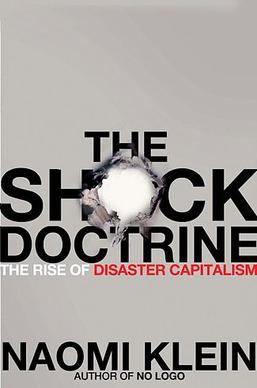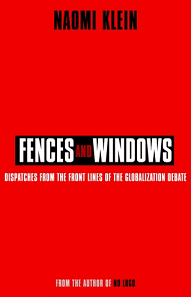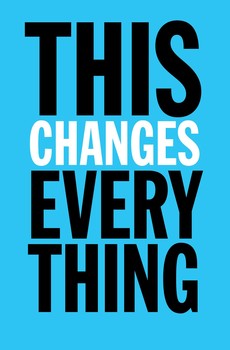
Naomi Rebekah Wolf is an American feminist author and journalist.

Naomi A. Klein is a Canadian author, social activist, and filmmaker known for her political analyses, support of ecofeminism, organized labour, left-wing politics and criticism of corporate globalization, fascism, ecofascism and capitalism. As of 2021 she is Associate Professor, and Professor of Climate Justice at the University of British Columbia, co-directing a Centre for Climate Justice.

Naomi Shihab Nye is an American poet, editor, songwriter, and novelist. Born to a Palestinian father and an American mother, she began composing her first poetry at the age of six. In total, she has published or contributed to over 30 volumes of poetry. Her works include poetry, young-adult fiction, picture books, and novels. Nye received the 2013 NSK Neustadt Prize for Children's Literature in honor of her entire body of work as a writer, and in 2019 the Poetry Foundation designated her the Young People's Poet Laureate for the 2019–21 term.

Avram David "Avi" Lewis is a Canadian documentary filmmaker, former host of the Al Jazeera English show Fault Lines and former host of the Canadian Broadcasting Corporation (CBC) current-affairs programs CounterSpin and On the Map.

Naomi Oreskes is an American historian of science. She became Professor of the History of Science and Affiliated Professor of Earth and Planetary Sciences at Harvard University in 2013, after 15 years as Professor of History and Science Studies at the University of California, San Diego. She has worked on studies of geophysics, environmental issues such as global warming, and the history of science. In 2010, Oreskes co-authored Merchants of Doubt, which identified some parallels between the climate change debate and earlier public controversies, notably the tobacco industry's campaign to obscure the link between smoking and serious disease.

The Shock Doctrine: The Rise of Disaster Capitalism is a 2007 book by the Canadian author and social activist Naomi Klein. In the book, Klein argues that neoliberal free market policies have risen to prominence in some developed countries because of a deliberate strategy of "shock therapy". This centers on the exploitation of national crises to establish controversial and questionable policies, while citizens are too distracted to engage and develop an adequate response, and resist effectively. The book advances the idea that some man-made events, such as the Iraq War, were undertaken with the intention of pushing through such unpopular policies in their wake.

Rupert Read is an academic and a Green Party campaigner and a former spokesperson for Extinction Rebellion. Read is a reader in philosophy at the University of East Anglia where he was awarded – as Principal Investigator – Arts and Humanities Research Council (AHRC) funding for two projects on "natural capital". His other major recent academic focus has been on the precautionary principle, having contributed substantially to work co-authored with Nassim Nicholas Taleb on applying the principle to questions of genetic modification of organisms. In further work, Read has theorised the utility of the precautionary principle in a wide range of areas, including: climate change, the environment, as well as financial and technology sectors.

Fences and Windows: Dispatches from the Front Lines of the Globalization Debate is a 2002 book by Canadian journalist Naomi Klein and editor Debra Ann Levy. The book is a collection of newspaper articles, mostly from The Globe and Mail, with a few magazine articles from The Nation and speech transcripts. The articles and speeches were all written by Klein in the 30 months after the publication of her first book, No Logo (1999), from December 1999 to March 2002. The articles focus upon the anti-globalization movement, including protest events and responses by law enforcement. The book was published in North America and the United Kingdom in October 2002.

Green New Deal (GND) proposals call for public policy to address climate change along with achieving other social aims like job creation, economic growth and reducing economic inequality. The following are some of the common points of the many Green New Deal proposals in the United States:

Eric M. Klinenberg is an American sociologist and a scholar of urban studies, culture, and media. He is currently Helen Gould Shepard Professor in Social Science and Director of the Institute for Public Knowledge at New York University. Klinenberg is best known for his contributions as a public sociologist.
Liberation theology in Canada has had a significant history in the later 20th and early 21st centuries.

Climate fiction is literature that deals with climate change. Generally speculative in nature but scientifically-grounded, works may take place in the world as we know it or in the near future. The genre frequently includes science fiction and dystopian or utopian themes, imagining the potential futures based on how humanity responds to the impacts of climate change. Rationales for the genre typically assume knowledge of anthropogenic effects—human-altered climate as opposed to weather and disaster more generally—although broader definitions exist. Technologies such as climate engineering or climate adaptation practices often feature prominently in works exploring their impacts on society.

This Changes Everything: Capitalism vs. the Climate is Naomi Klein's fourth book; it was published in 2014 by Simon & Schuster. Klein argues that the climate crisis cannot be addressed in the current era of neoliberal market fundamentalism, which encourages profligate consumption and has resulted in mega-mergers and trade agreements hostile to the health of the environment.

This Changes Everything is a 2015 documentary film directed by Avi Lewis. It is based on the book This Changes Everything: Capitalism vs. the Climate by Naomi Klein.

The Leap Manifesto is a Canadian political manifesto that was issued by a coalition of environmentalists, Indigenous, labour, and faith leaders, authors, and artists in September 2015 in the context of that year's Canadian federal election campaign. The document proposes broad changes to Canadian society and economics to respond to climate change through a policy framework that also addresses issues of wealth and income inequality, racism, and colonialism.

Sunrise Movement is an American 501(c)(4) political action organization that advocates political action on climate change. When launched in 2017, the movement's goal was to elect proponents of renewable energy in the 2018 midterm elections, first in the Democratic primaries and then in the general election held on November 6, 2018. Since the midterm elections, the movement has been working towards shifting the Overton window on climate policy to center the environmental program known as the Green New Deal.

Varshini Prakash is an American climate activist and executive director of the Sunrise Movement, a 501(c)(4) organization which she co-founded in 2017. She was named on the 2019 Time 100 Next list, and was a corecipient of the Sierra Club John Muir Award in 2019.

A Planet to Win: Why We Need a Green New Deal is a 2019 book arguing for the importance of a Green New Deal and describing political and societal steps to achieving one.
Green recovery packages are proposed environmental, regulatory and fiscal reforms to build prosperity in the wake of an economic crisis, like the COVID-19 pandemic or the Global Financial Crisis. They pertain to fiscal measures that intend to recover economic growth while also positively benefitting the environment, including measures for renewable energy, efficient energy use, nature based solutions, sustainable transport, green innovation and green jobs, amongst others.

All We Can Save is a 2020 collection of essays and poetry edited by Dr. Ayana Elizabeth Johnson and Dr. Katharine Wilkinson and published by One World. The collection sets out to highlight a wide range of women's voices in the environmental movement, most of whom are from North America. The book represents a wide range of essays, and creative works by over 50 women involved in climate change activism, science, and policy.

















